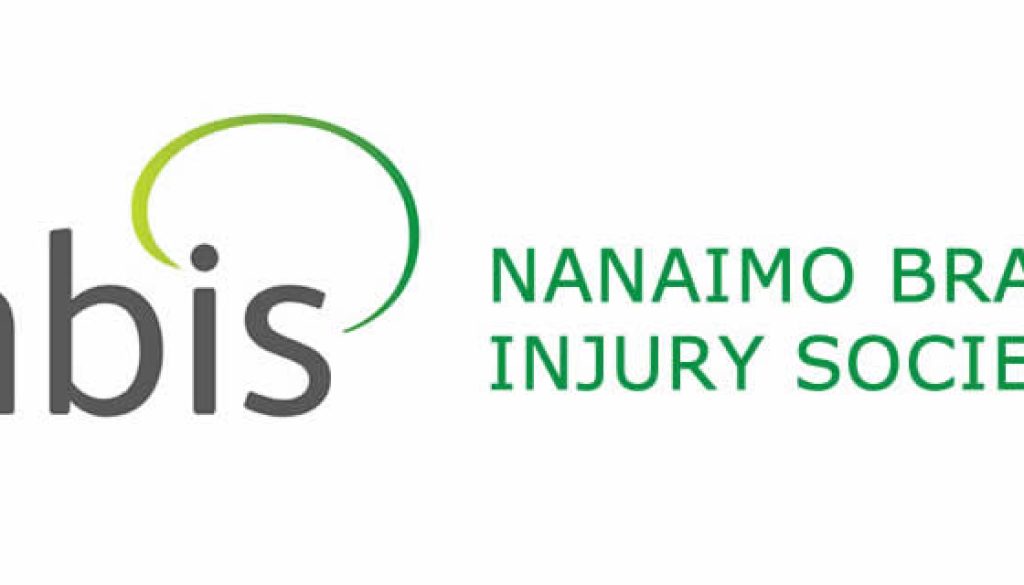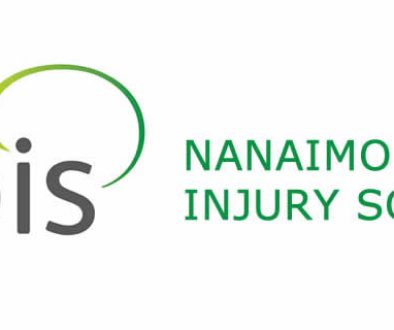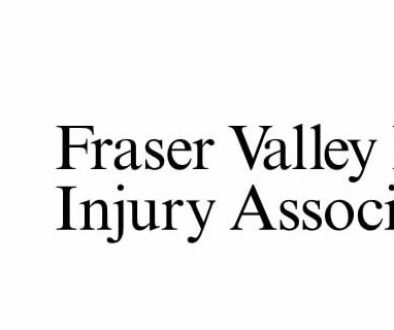NBIS – Closed Doors, Open Hearts & Minds During COVID-19
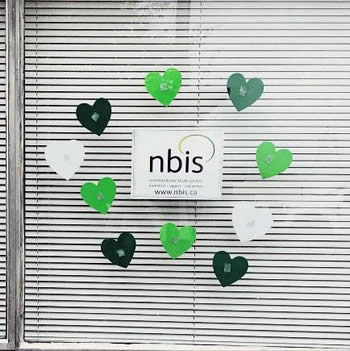 With staff and client safety and well-being always our first priority, NBIS closed our doors and started working remotely on March 17, 2020. Our staff didn’t skip a beat getting set-up at home offices, communicating with clients, volunteers and key stakeholders. A summary of our activities follow.
With staff and client safety and well-being always our first priority, NBIS closed our doors and started working remotely on March 17, 2020. Our staff didn’t skip a beat getting set-up at home offices, communicating with clients, volunteers and key stakeholders. A summary of our activities follow.
Navigator Program
 NBIS Community Navigator, Mick Trimbell (photo right), has been busier than usual during this time frame working with existing and new clients and family members affected by ABI.
NBIS Community Navigator, Mick Trimbell (photo right), has been busier than usual during this time frame working with existing and new clients and family members affected by ABI.
The nature of the support provided by the Navigator has moved from largely centred around brain injury and resource connection to include a much larger component of psychosocial outreach support. Clients are now managing brain injury as well as having to navigate a rapidly changing way of life, a lack of community supports, and the ambiguous question of how long this situation will last.
Following are some of the challenges we have observed due to COVID-19 quarantining:
- Mental health challenges associated with brain injury are exacerbated due to isolation brought on by social distancing, and as a result of the health and safety measures required;
- Barriers to accessing community resources due to physical offices being shut down as well as challenges in accessing digital or online resources due to cognitive challenges (sensory sensitivity, new task related neuro-fatigue, memory challenges, etc.) as a result of brain injury symptoms;
- Interruption of established routines necessary for daily life management;
- Interruption of rehabilitation due to facility closures;
- All these factors have attributed to the Navigator worker engaging with larger number of clients in need of case-management support (30 for this time period in 2019 versus 37 in 2020) and increased contacts with clients (85 versus 68 for this same time period in 2019).
Education
NBIS education programs and various resources (many COVID-related) have been shared widely online via our Facebook, website, Twitter, Instagram and YouTube. Here are just a few examples of the more popular resources we have shared during this time to promote physical, mental and emotional wellness.
Coping with Stress during Difficult Times
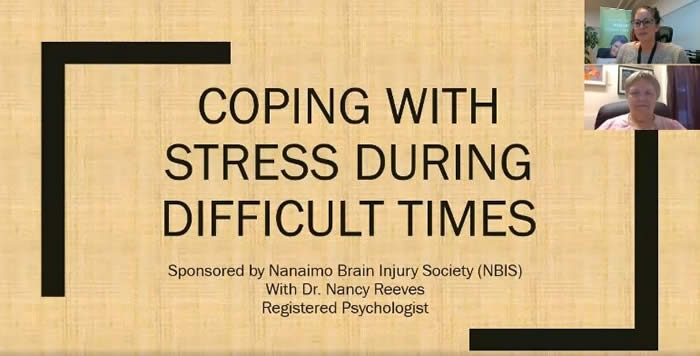
Registered Psychologist Dr. Nancy Reeves on coping with stress. With over 2,929 People Reached and 115+ Reactions, Comments & Shares on Facebook alone, this resource is one our clients and community members continue to find very useful now and into the future!
Needing some tips and strategies to reduce stress during this difficult COVID-19 situation? Last night NBIS sat down with Dr. Nancy Reeves and did a special online education session, “Coping with Stress During Difficult Times” to help some of our clients and caregivers get through the coming weeks.
Understanding Brain Injury (UBI)
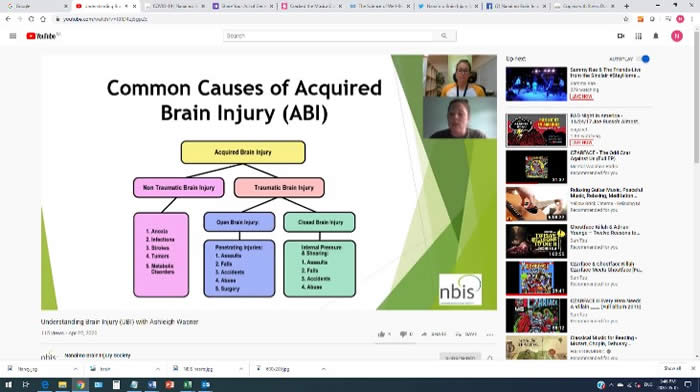
Typically offered every other month in a public venue, this was our first UBI to be delivered online. It was recorded on Zoom and shared on Facebook and other media channels. At last count, stats on Facebook show 2,369, People Reached, 49 Reactions, Comments & Shares.
NBIS sat down with our fantastic volunteer Ashleigh Wasner #CheersToVolunteers to record our April Understanding Brain Injury Public Workshop. If you are interested in learning more about brain injury come check out the NBIS YouTube channel!
Brainstrong Meditation
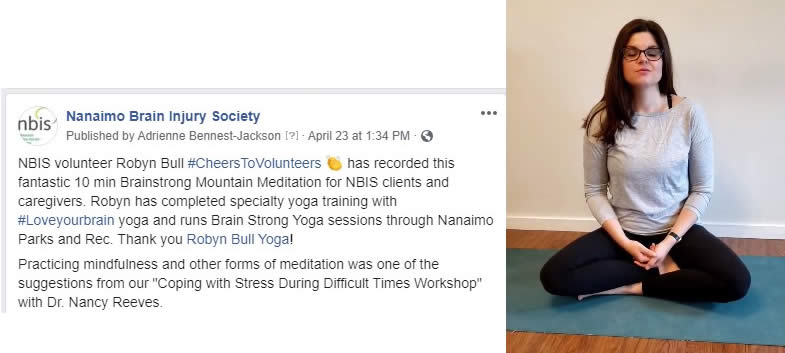
Another popular program was delivered through Facebook and appreciated widely by clients and the public at large.
NBIS volunteer Robyn Bull #CheersToVolunteers has recorded this fantastic 10 min Brainstrong Mountain Meditation for NBIS clients and caregivers. Robyn has completed specialty yoga training with #Loveyourbrain yoga and runs Brain Strong Yoga sessions through Nanaimo Parks and Rec. Thank you Robyn Bull Yoga!
Volunteering/Peer Support
What do NBIS volunteers do when they are asked to stay home? Since the office doors were closed March 17th, the primary goal was to remain connected with NBIS volunteers in a meaningful way. This included the initial call advising the suspension of volunteer services, and a conversation around how volunteers were doing. Phone calls to check in are ongoing. There had been an initial flurry of email activity exchanging information, tutorials, and videos of hope and inspiration.
By late March, attention and focus turned to how to keep volunteers engaged. Collaborations with the volunteers included:
- Brainstorming on how to celebrate ‘National Volunteer Week (April 19-24)
- Discussions on how to reach out and support patients in the hospital
- Discussions on how to support NBIS Coffee drop in clients
- Education/ practice with Zoom
- Volunteers participated in a focus group to help with website and vouchers
By late April, volunteers were collaborating on what peer support might look like moving forward in compliance with social distancing measures:
- Spatial limitations at the hospital
- Using technology such as video conferencing, peer-made videos
- Using the time to collaborate on improving existing services and new initiatives
Celebrating the Wins!
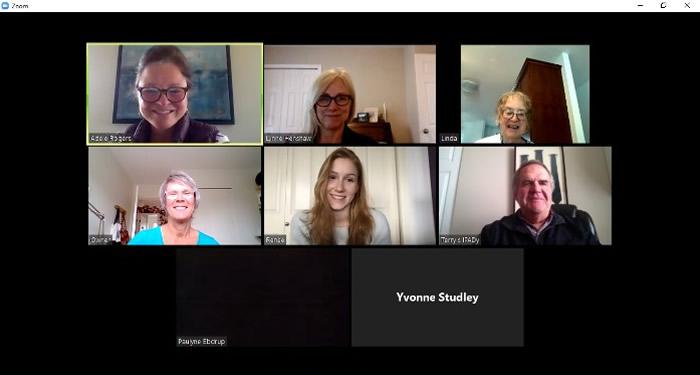
- With the volunteers unable to perform their usual roles in the community, NBIS has been able to utilize their contributions in other ways by collaborating on service improvement and program development
- Although not all volunteers are comfortable with the newer communication technologies, many are doing quite well with it (e.g.; Zoom).
- Volunteers have been very clear that using technology to reach patients and clients is a good thing, but in no way does this replace the human contact (when it becomes safe to resume)
- Volunteer retention is 100%; we have gained two new volunteers
- NBIS volunteers are resilient and not new to life-changing events. They have been nothing short of inspiring, optimistic and patient!
NBIS volunteers have logged over 40 volunteer hours
communicating, collaborating and supporting one another
via: phone calls, e-mail, focus groups, and video conferencing.
And so our journey continues. We are pleased to report we haven’t lost our sense of humour, and we look at the highlights as we have opened our hearts and minds in ways we never imagined pre-COVID. Stay well and stay safe!

